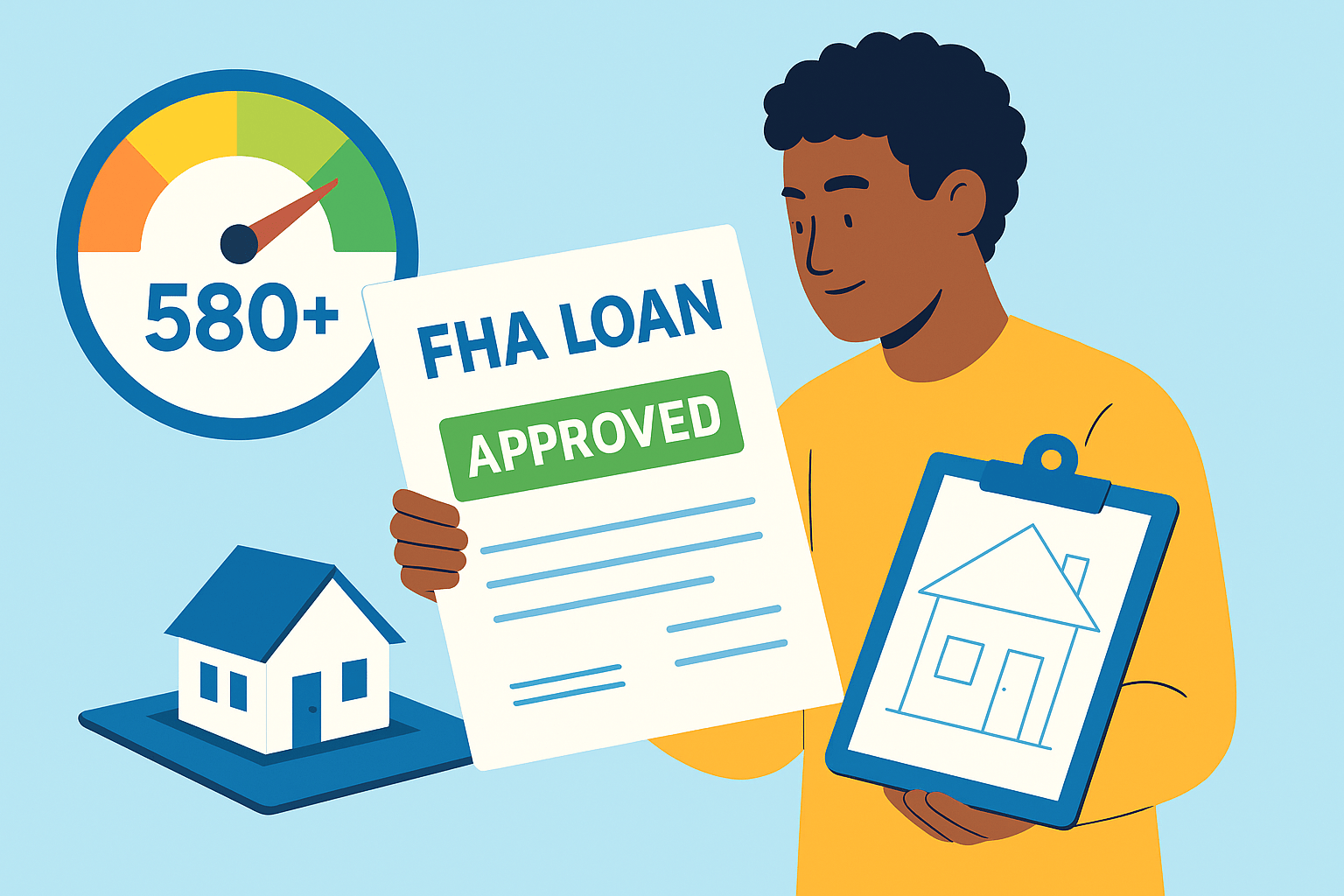Mortgage Credit Certificate First-Time Homebuyer Assistance Programs
Mortgage Credit Certificate in Florida: Unlock a Powerful Tax Break for First-Time Homebuyers
You only buy your first home once—why leave free money on the table? The Mortgage Credit Certificate (MCC) Program in Florida rewards qualified first-time buyers with a federal income tax credit worth up to 50% of the mortgage interest you pay each year. In plain English: less money to the IRS, more money for groceries, emergencies, or that long-overdue beach weekend. This guide dives deep into how the MCC works, who qualifies, and the smartest ways to claim every last dollar.
How the Mortgage Credit Certificate Works
The MCC functions like a VIP pass that converts a slice of your annual mortgage interest into a direct tax credit—not just a deduction. Credits reduce your tax liability dollar for dollar. That can mean hundreds, sometimes thousands, of dollars back each year for the life of your loan.
- Issued by Florida Housing Finance Corporation (FHFC).
- Provides a credit of 10%–50% of annual mortgage interest (typically 30%).
- Maximum credit: $2,000 per year for loans over $417,000; uncapped below that.
- Applies as long as the home remains your primary residence and the loan is active.
Imagine your mortgage interest totals $7,500 the first year and your MCC rate is 30%. You’d pocket a $2,250 credit come tax time—money you can use to pay down principal faster or stock a hurricane emergency kit.
Is the Mortgage Credit Certificate Worth It?
Short answer: almost always. The program lowers your effective monthly payment because many lenders let you gross up your pre-approval income by the expected credit. That could boost buying power enough to land the three-bedroom instead of the cramped condo.
According to FHFC data reviewed in 2023, households using Florida’s MCC saved an average of $1,857 per year. Over the typical 30-year mortgage, that’s roughly $55,700—comparable to a college fund or a new roof every decade.
On a more personal note, consider Jamie Morales, a 29-year-old ER nurse in Hillsborough County. Jamie closed on a $315,000 townhouse last spring. Her MCC credit shaved $1,643 off her federal taxes in year one—enough to cover her first HOA assessment and a weekend trip to Key West. “It felt like a victory lap for all the overtime shifts,” she told us.
Benefits Beyond the Tax Credit
- Instant cash-flow relief. A lower tax bill translates into higher take-home pay every paycheck when you adjust withholding.
- Layerable with other aid. Use the MCC alongside down-payment or closing-cost assistance, FHA, VA, USDA, or conventional loans.
- Transferable savings. If rates drop and you refinance, you can often reissue the certificate for a small fee.
- Homeownership stability. Extra yearly savings can cushion unexpected repairs—critical in a state where AC units work harder than theme-park employees in July.
Florida MCC Eligibility Checklist
Not everyone can claim the prize. Here’s the quick rundown:
- First-time buyer rule. You haven’t owned a principal residence in the last three years (veterans are exempt).
- Primary residence. The property must be your main home within Florida.
- Income caps. Limits vary by county and household size. Example: In Miami-Dade, two-person households must earn under roughly $108,840 (2024 figures).
- Purchase-price limits. Again by county—for instance, $481,176 in Orange County for existing homes.
- Approved lender. You must use an MCC-participating lender, which submits paperwork to FHFC before closing.
Pro tip: check both income and purchase-price limits after locking a contract; markets move fast here, and FHFC updates caps annually.
Can I Use the MCC With an FHA Loan?
Absolutely. FHA loans pair nicely with the certificate because the 3.5% down payment keeps cash out of pocket manageable. Lenders calculate debt-to-income (DTI) ratios after subtracting the expected credit, sometimes lowering DTI by two full percentage points. That small tweak can be the difference between approval and denial.
How to Apply for the Florida MCC
You don’t apply directly to the state; your lender does. But you must be proactive to make sure the form doesn’t slip through the cracks.
- Choose an MCC-approved lender. FHFC lists them on its website.
- Complete the MCC application. This usually happens alongside your loan application.
- Pay the issuance fee. Expect $395–$700, often rolled into closing costs. Many buyers recoup this in the first year.
- Sign Form 8329 at closing. This formally records the Mortgage Credit Certificate with the IRS.
- Claim the credit each tax year. File IRS Form 8396. Consider adjusting your W-4 to see savings sooner.
Heads up: processing can take two to four weeks. Let your lender know early if you’re aiming for a 30-day close.
Crunching the Numbers: Potential Lifetime Savings
Numbers tell the clearest stories. Below is a snapshot of what you could pocket, assuming a 30% credit rate and 4% mortgage interest on a 30-year, $300,000 loan.
| Year | Interest Paid | Tax Credit (30%) |
|---|---|---|
| 1 | $11,915 | $2,000* (capped) |
| 5 | $11,063 | $2,000* (capped) |
| 10 | $9,881 | $2,000* (capped) |
| 20 | $5,671 | $1,701 |
| Total (20 yrs) | $176,200 | $36,540 |
*IRS caps the credit at $2,000 when the MCC rate exceeds 20%.
Even with the cap, a disciplined homeowner could funnel the tax savings into extra principal payments, knocking five years off the loan and saving another $40,000 in interest. Compound benefits, meet Florida sunshine.
Pairing the MCC With Down-Payment Assistance
The MCC seldom walks alone. Florida Housing’s HFA Preferred and HFA Advantage second mortgages offer up to $10,000 in deferred, zero-interest funds. Pairing them means:
- Lower out-of-pocket costs at closing
- Annual tax relief for the life of the loan
- A more forgiving monthly payment structure
Think of it as building a financial safety net with two layers instead of one.
Common Mistakes to Avoid
- Forgetting to claim. Roughly 9% of MCC holders nationwide skip Form 8396 their first year, per an internal FHFC audit in 2022.
- Exiting the home too soon. Selling within nine years may trigger recapture tax. Your lender will outline the formula.
- Refinancing without reissue. Most certificates can be revalidated, but only if you ask before signing refinance papers.
- Using a non-participating lender. This kills eligibility faster than a summer thunderstorm cancels a picnic.
Step-By-Step Timeline
- Attend a HUD-approved homebuyer education class (4–6 hours, often online).
- Collect two years of W-2s, 30-day pay stubs, and last two bank statements.
- Shop rates and pick an MCC lender.
- Sign the MCC application, pay the fee, and lock your rate.
- Close on the home, sign Form 8329, move in.
- File Form 8396 with your federal taxes every year.
FAQ
Does the MCC expire?
No, it remains valid for the life of the original mortgage, provided you keep the home as your primary residence.
Can I combine the MCC with a USDA loan?
Yes. USDA’s 0% down structure plus the tax credit can dramatically lower effective housing costs, especially in rural counties like Gilchrist or Okeechobee.
What is recapture tax and should I worry?
If you sell within nine years and make a significant profit, the IRS may reclaim a portion of prior credits. Many homeowners owe little to none because of built-in exemptions.
Is the MCC available for new construction?
Yes, as long as the property meets purchase-price limits and becomes your primary residence within 60 days of closing.
Does Florida offer an MCC for second homes?
No. The program is strictly for first-time buyers or qualifying veterans purchasing a primary residence.
Ready to Turn Tax Savings Into Keys?
The sunshine, the palm trees, the equity—Florida homeownership looks bright when you layer in an MCC. Our brokerage specializes in pairing buyers with lenders who move fast and know the guidelines cold. If you’re curious how much you could save—or how soon you could close—schedule a free, 15-minute strategy call. We’ll run the numbers, explain next steps, and set you on the path to a front door you can call your own.
Explore More Blog Posts
Checkout more similar posts those will help you to choose better property.












 Profile
Profile Password
Password Saved Properties
Saved Properties Sign Out
Sign Out
 +0.01
+0.01
 -0.15
-0.15

